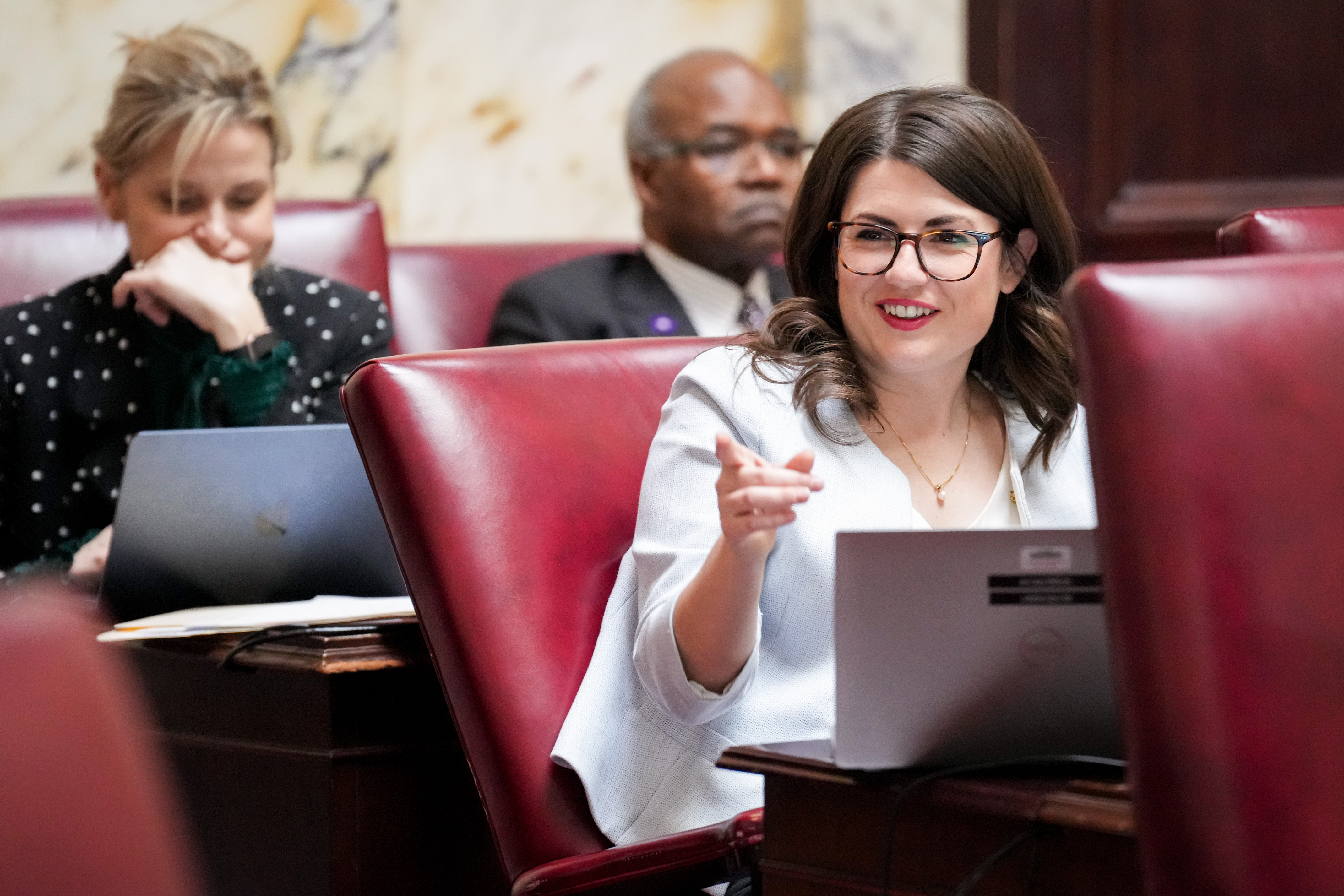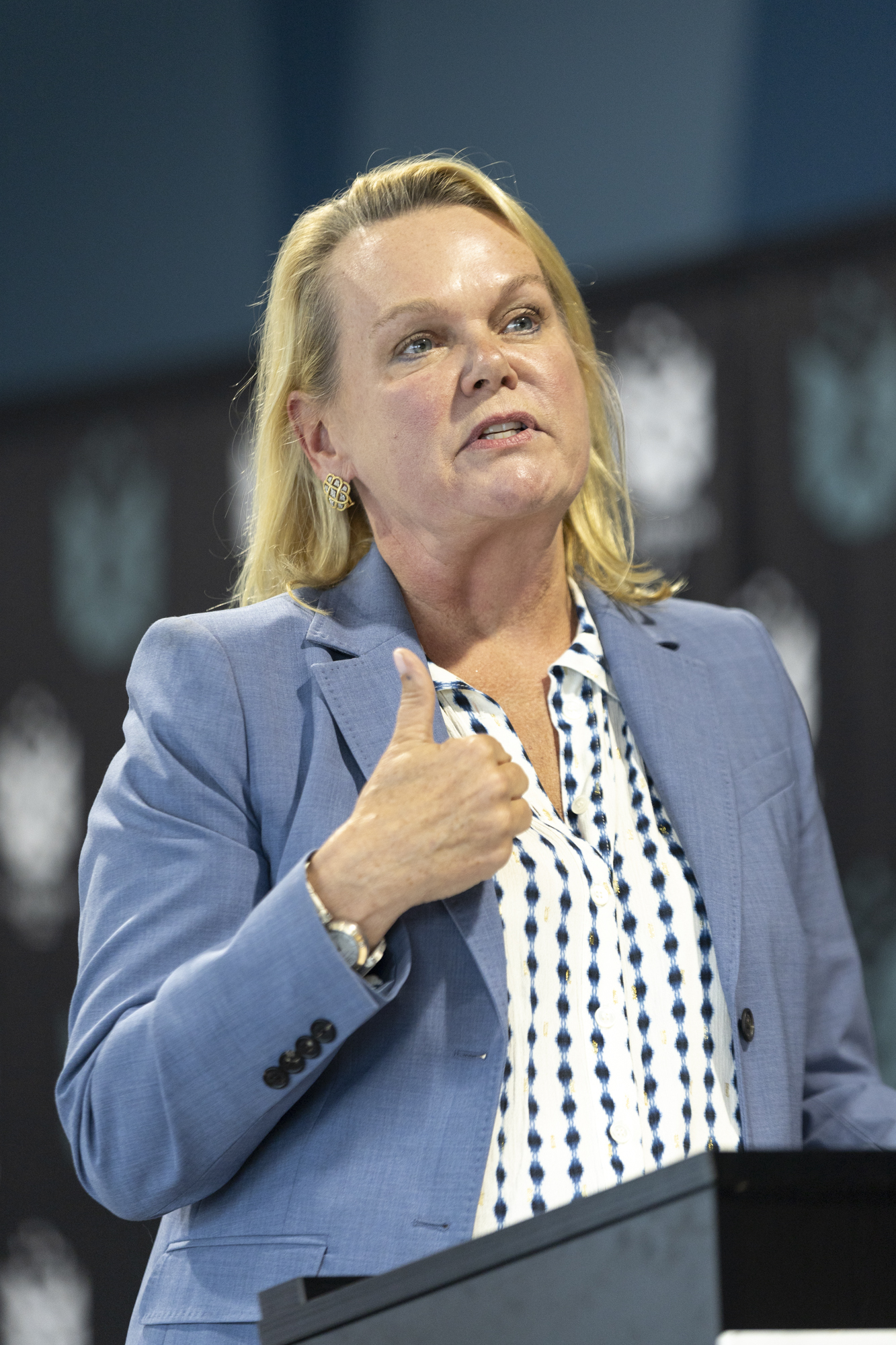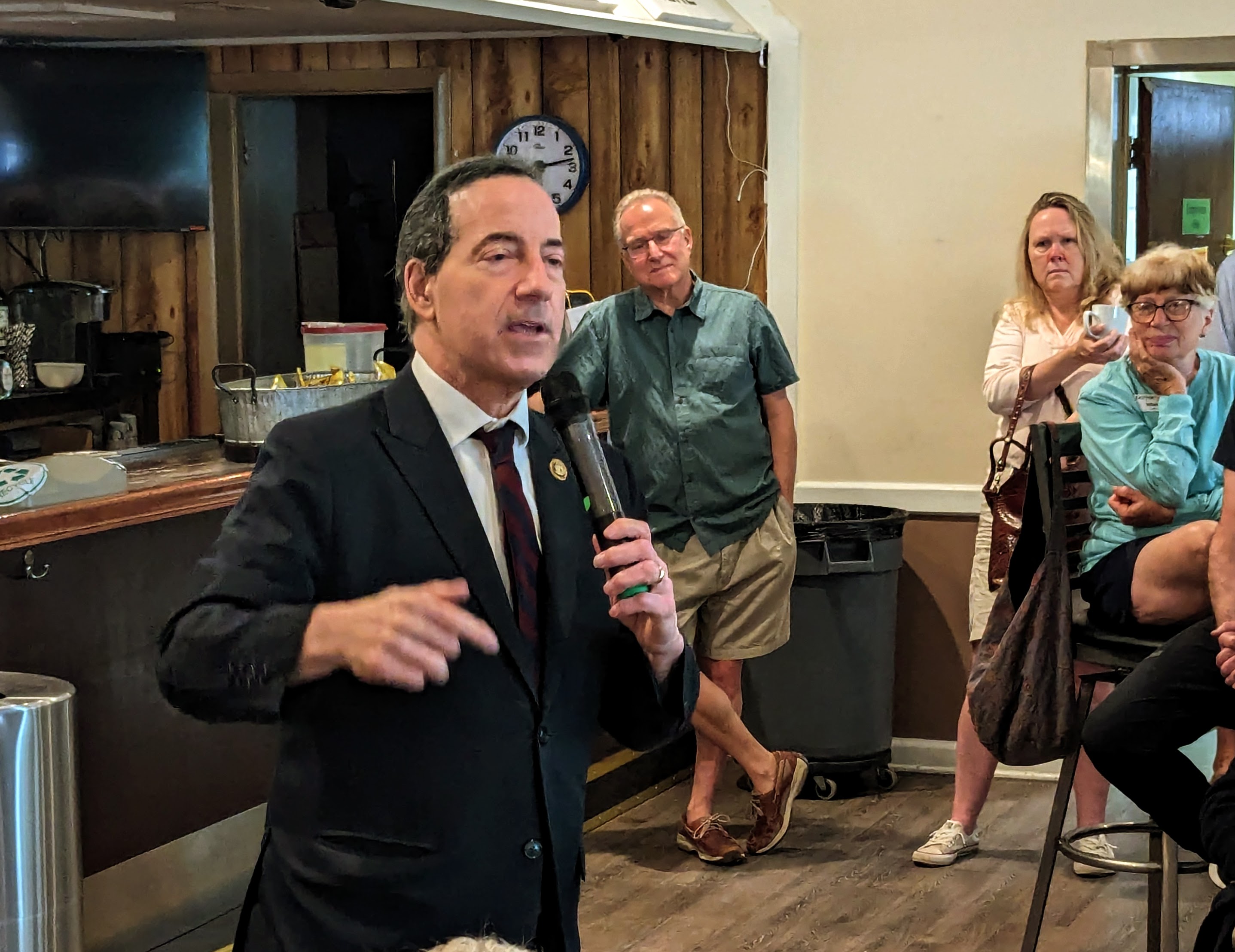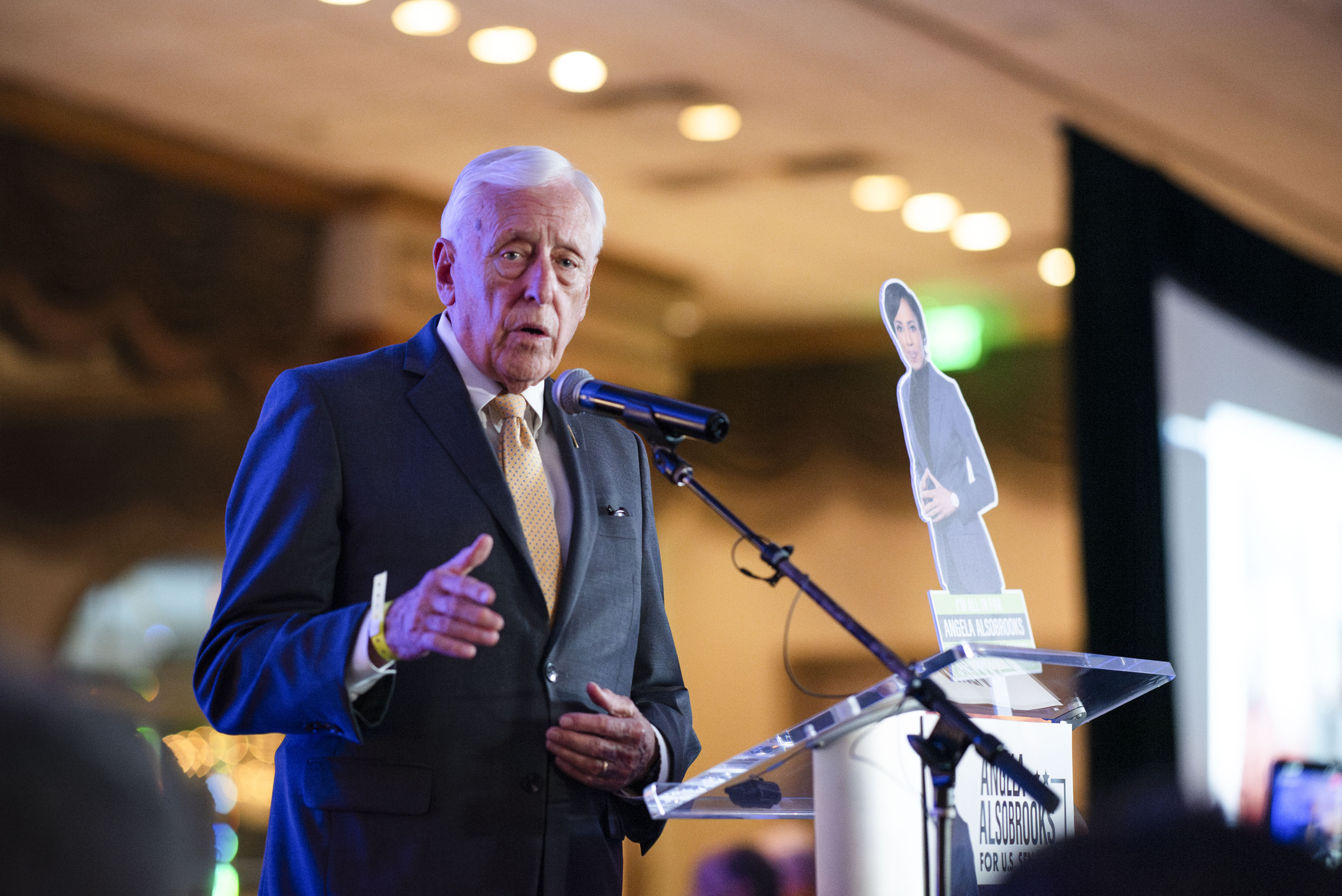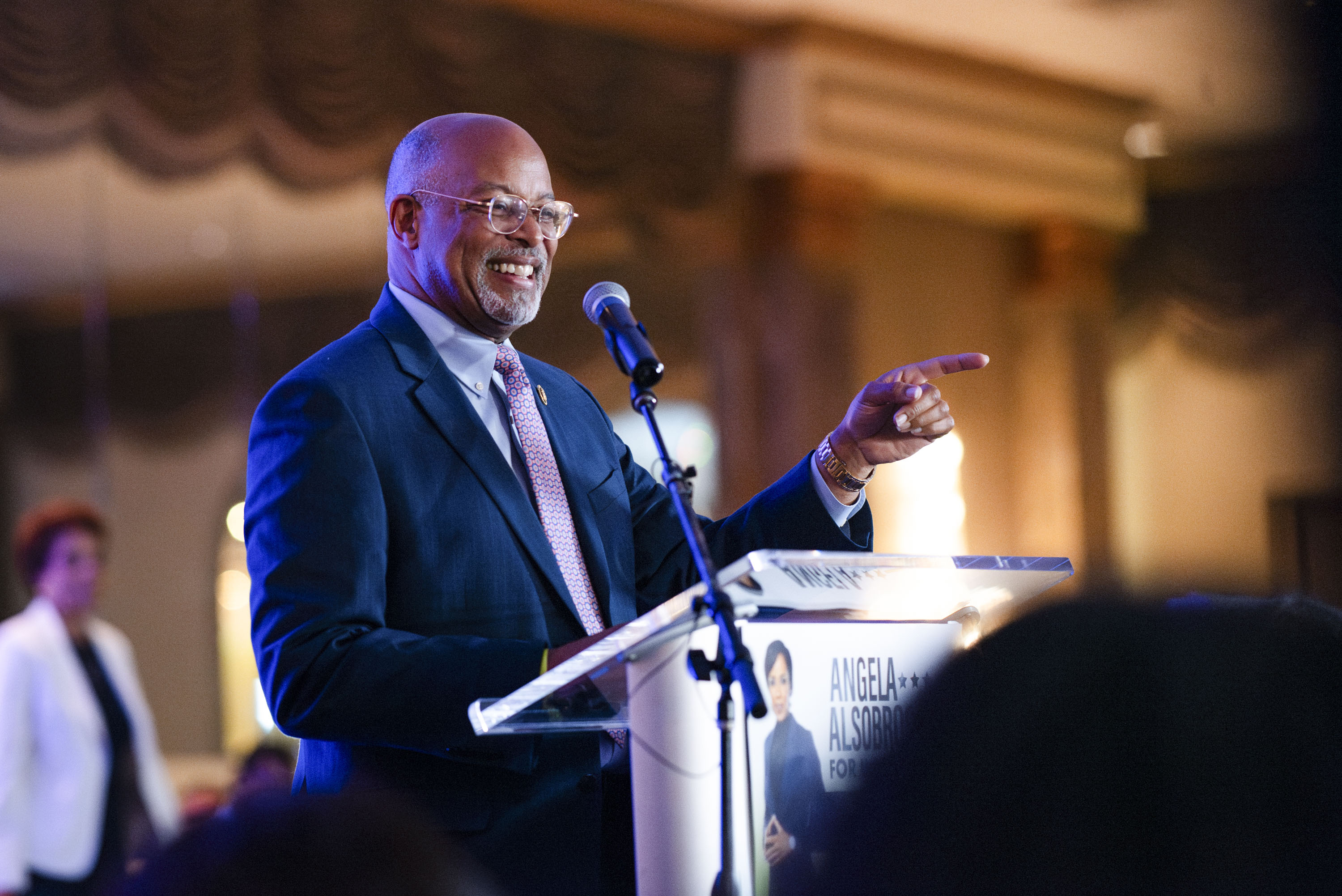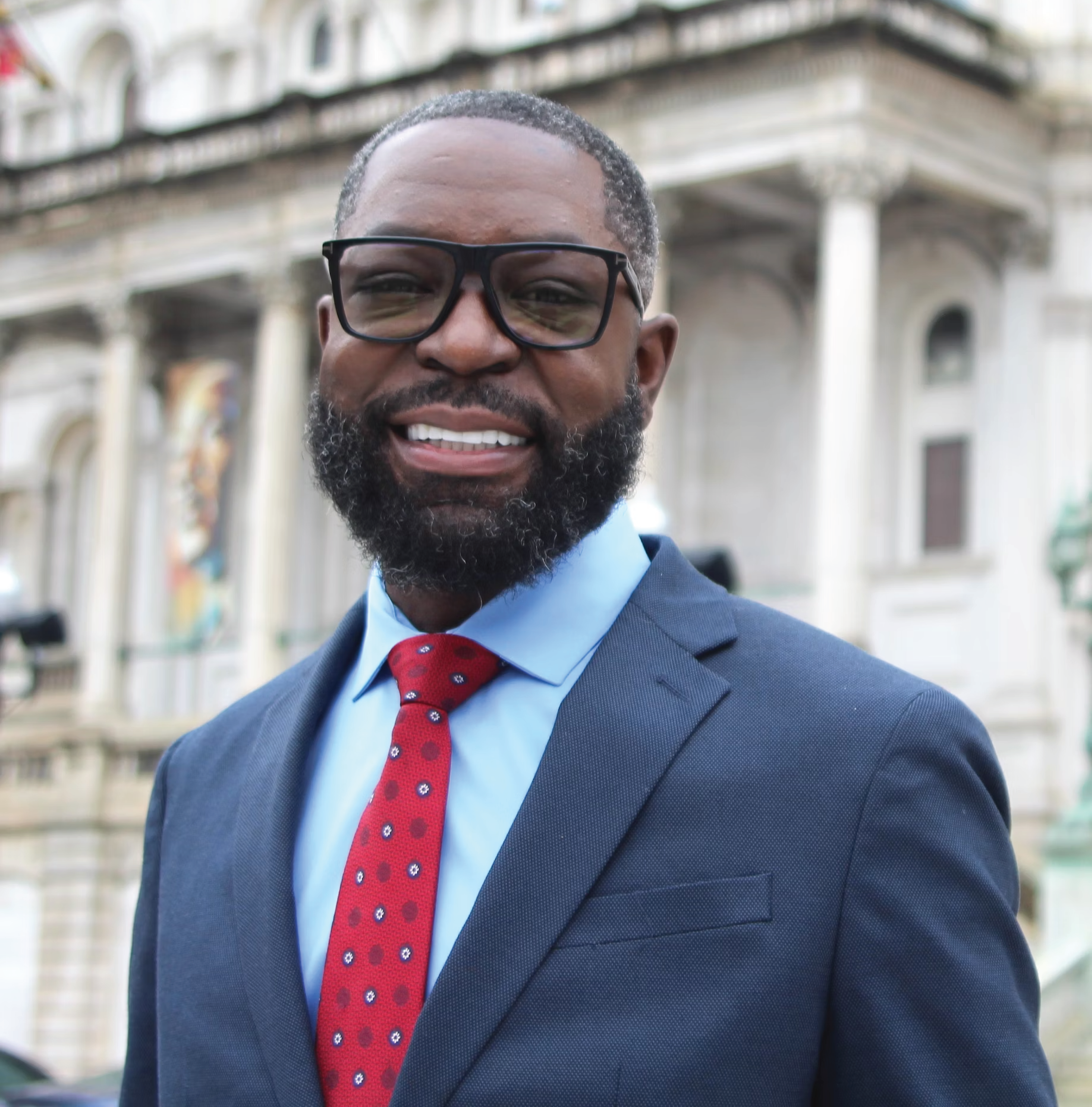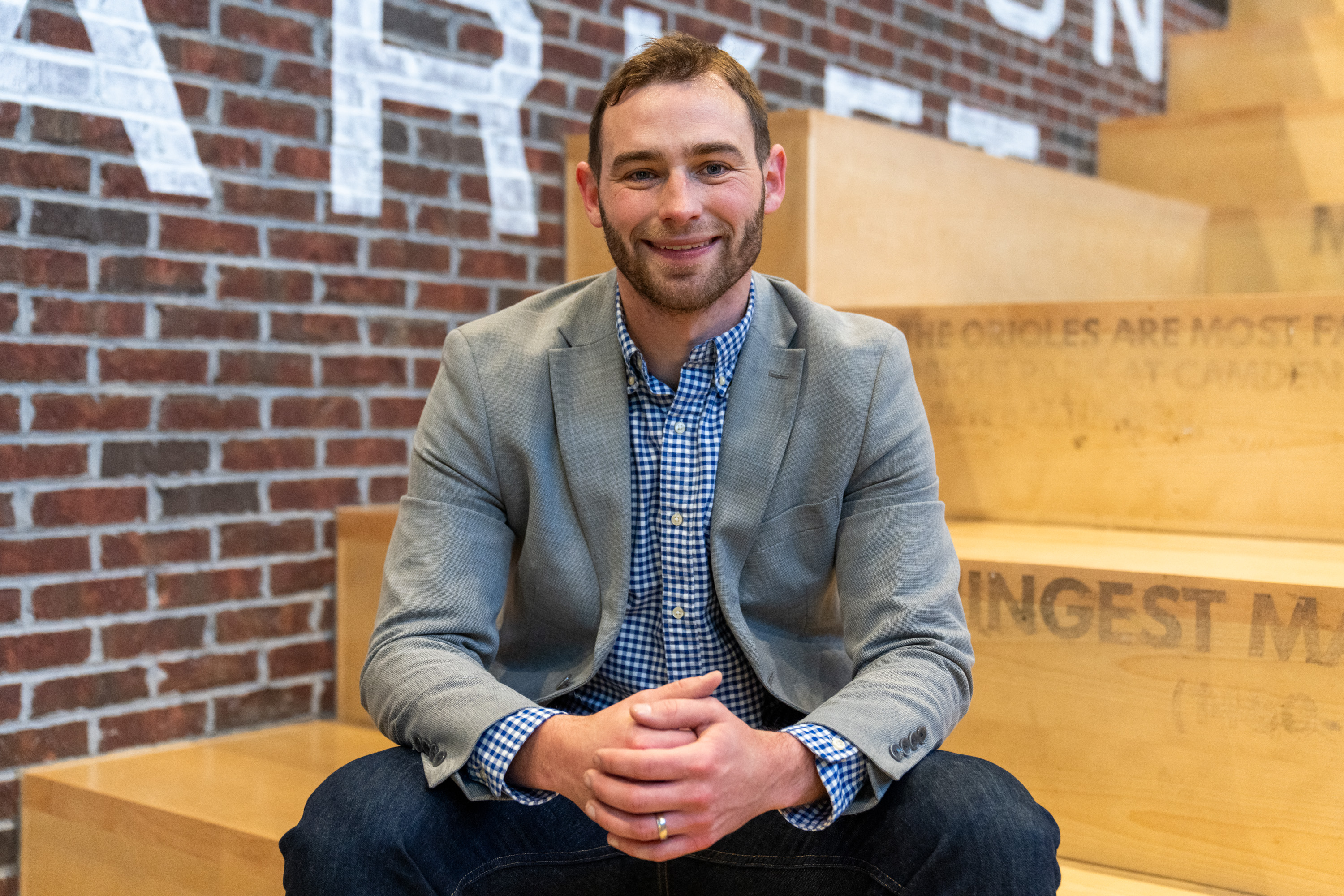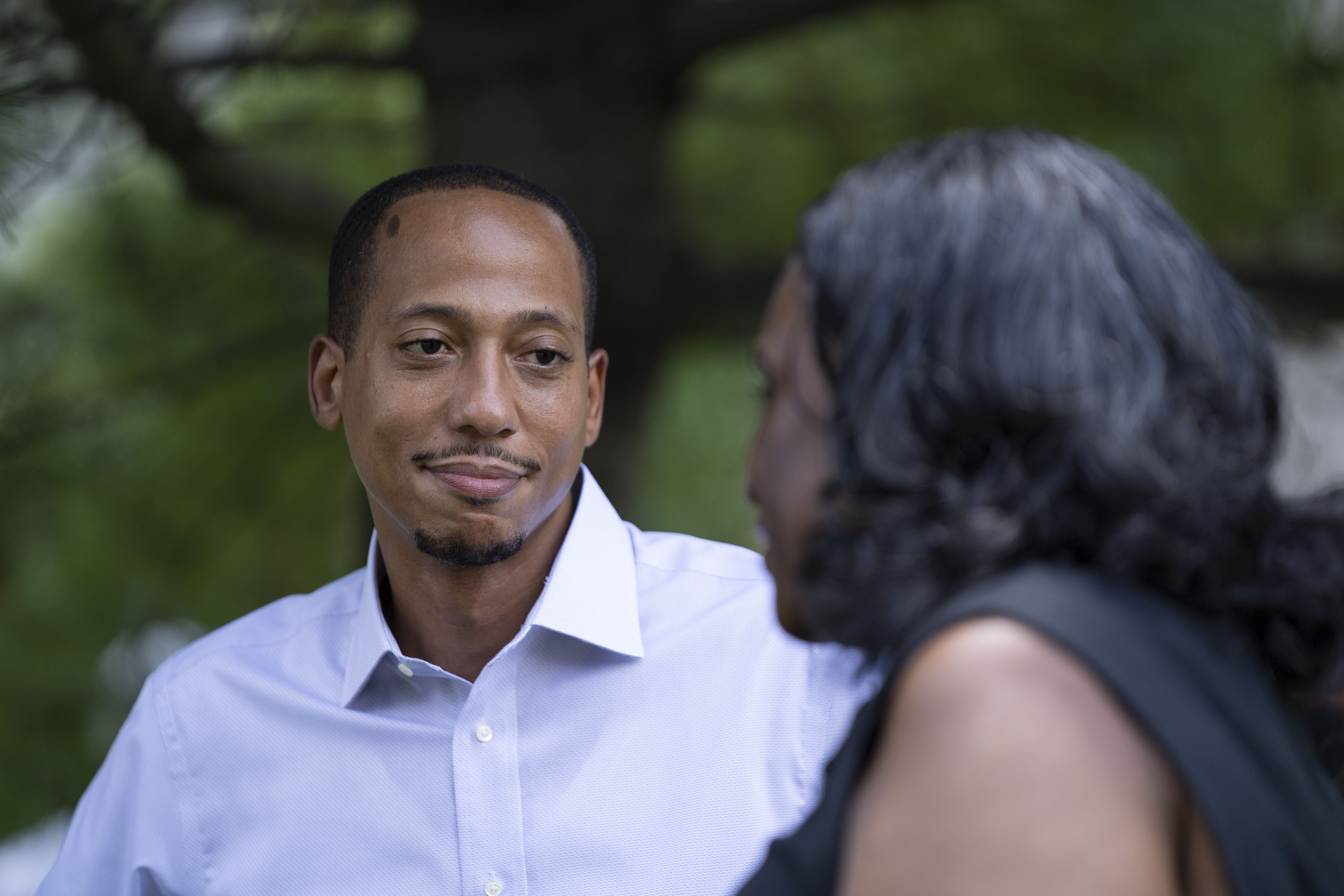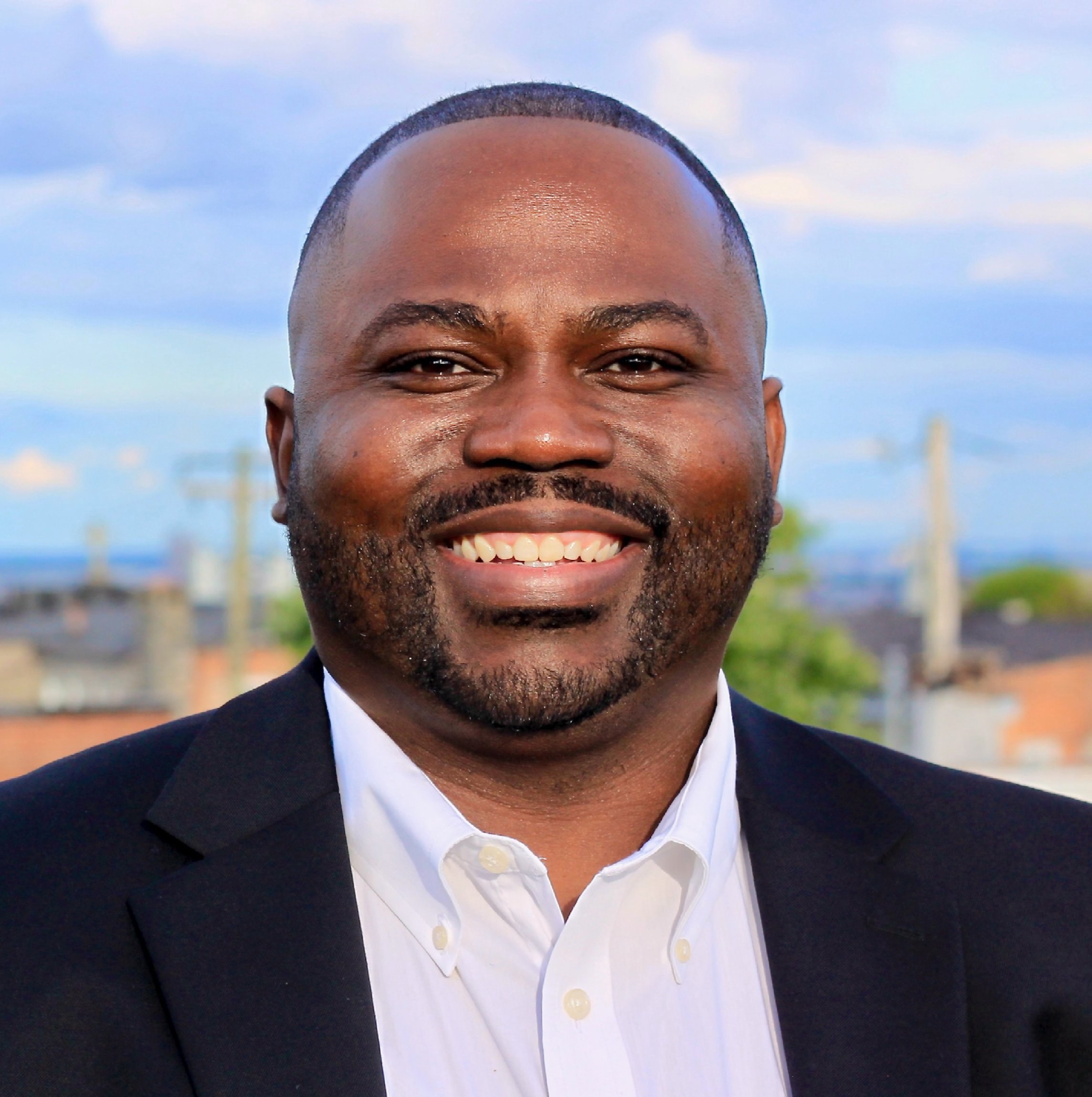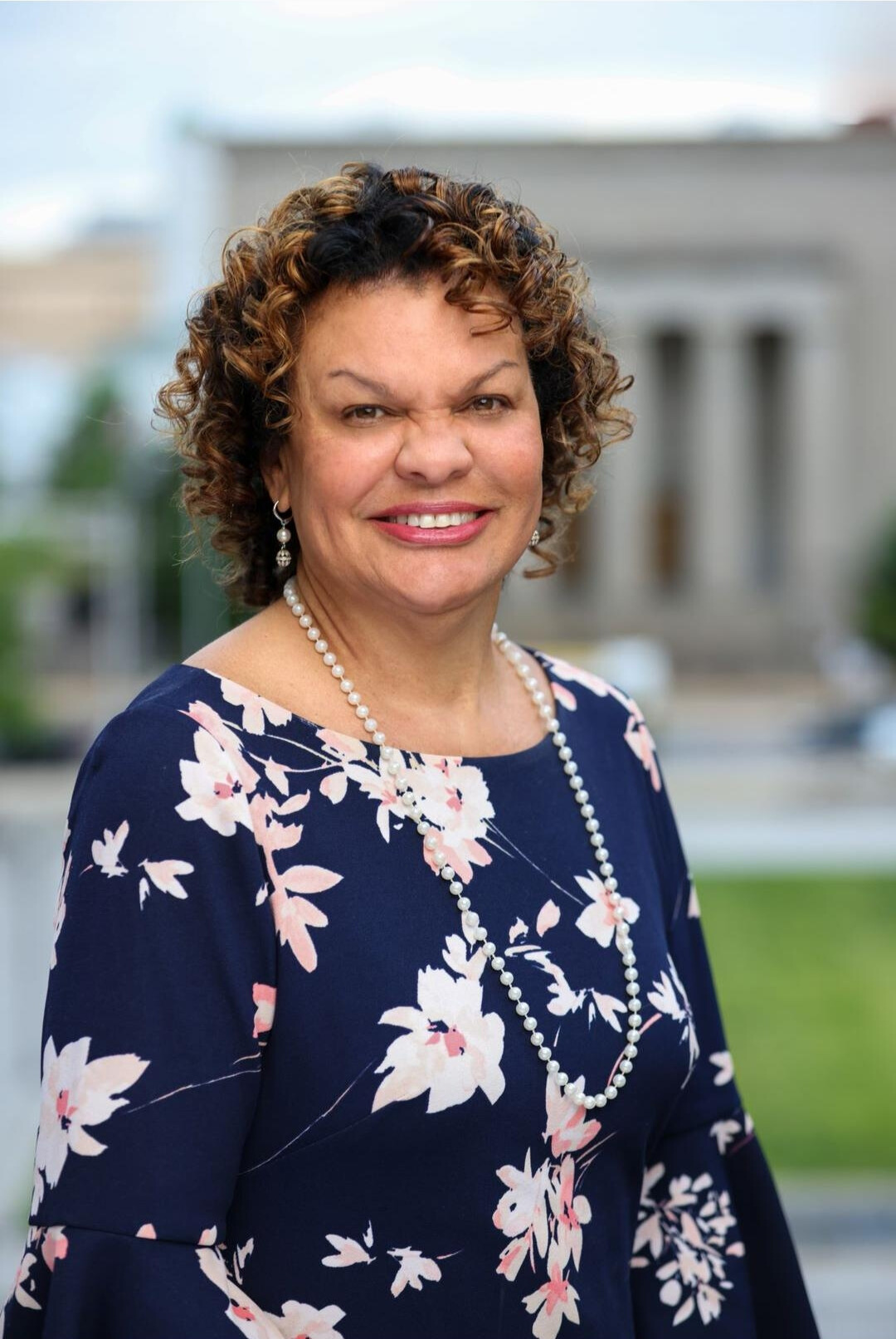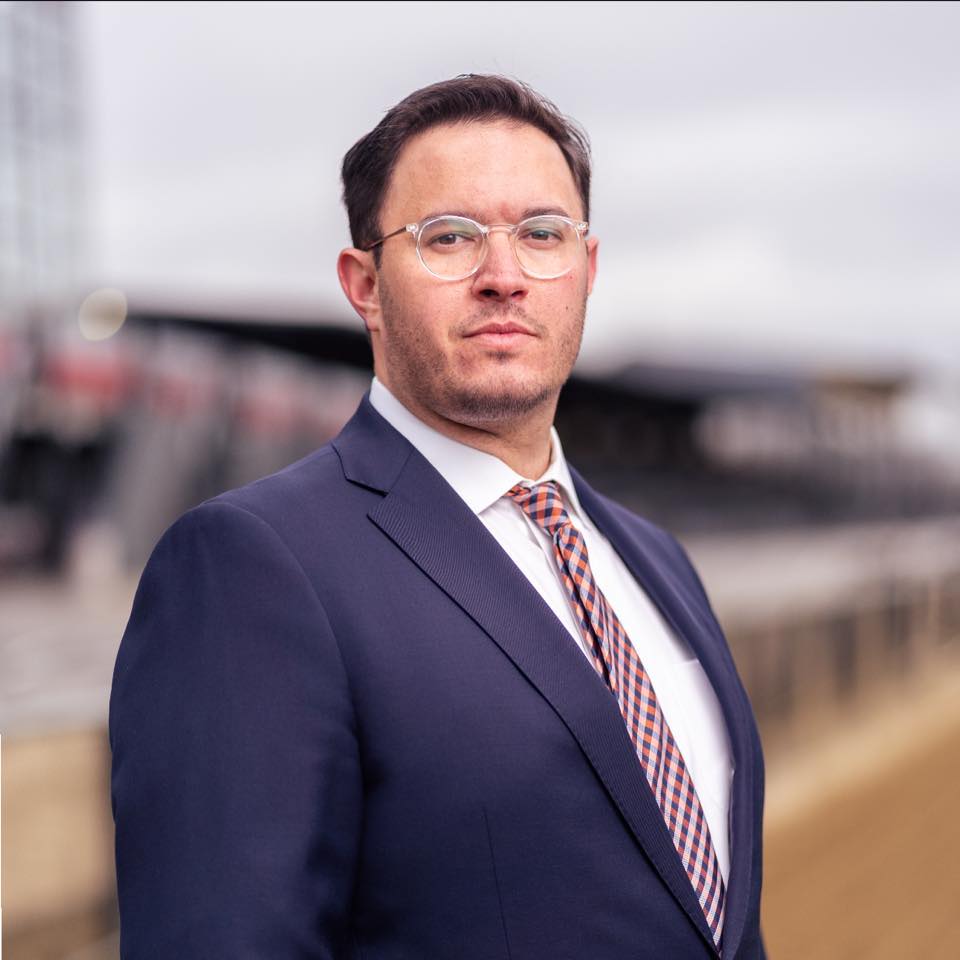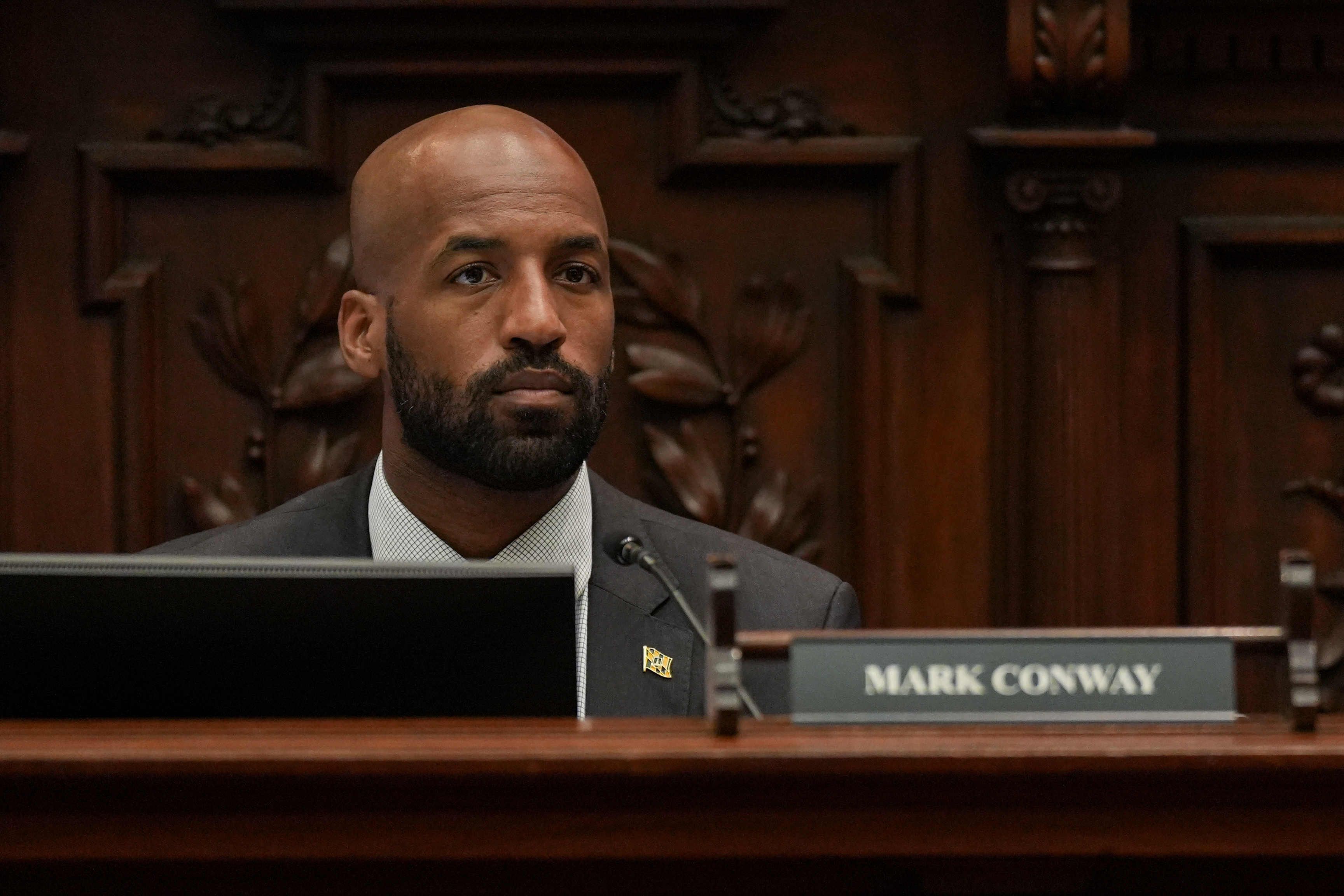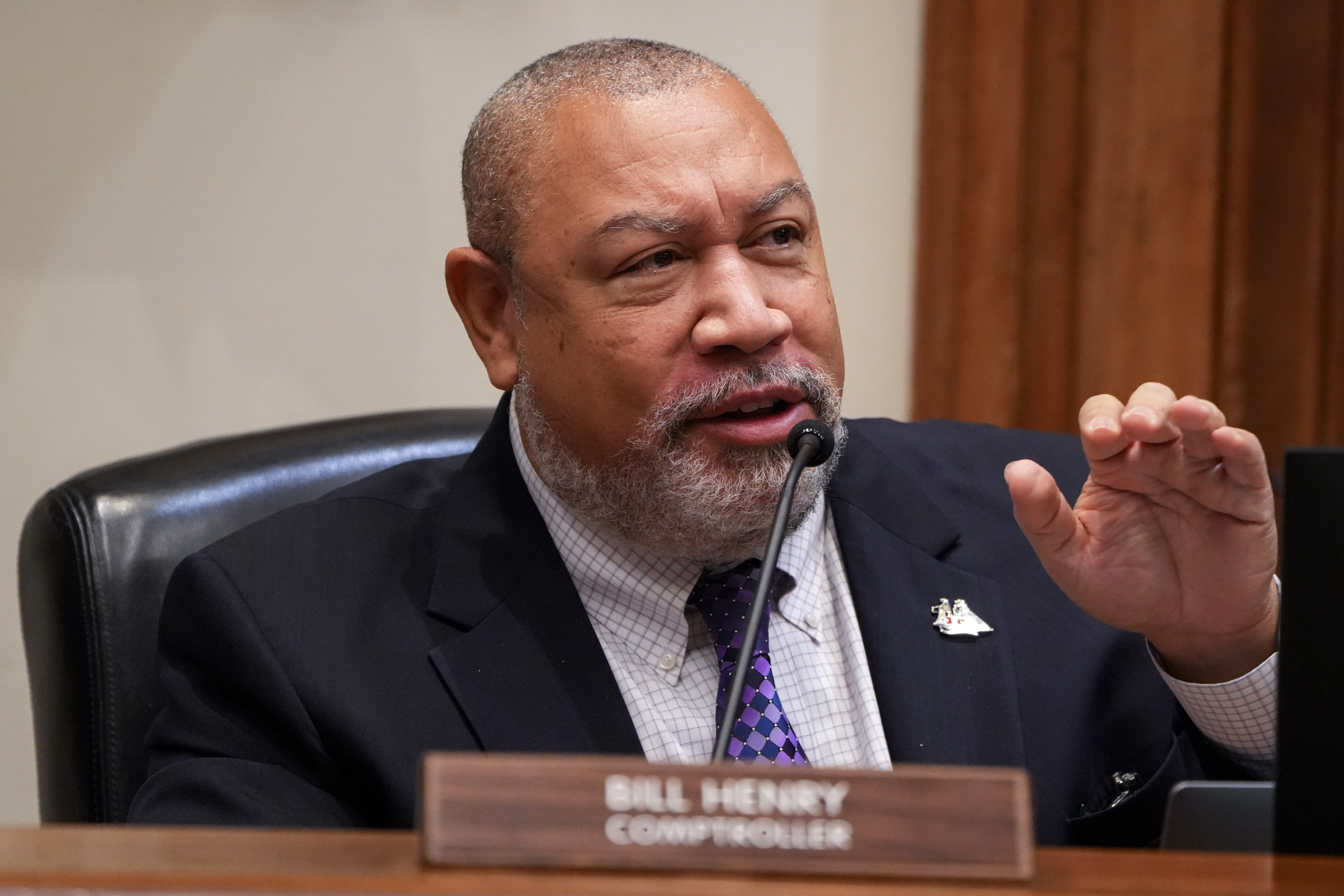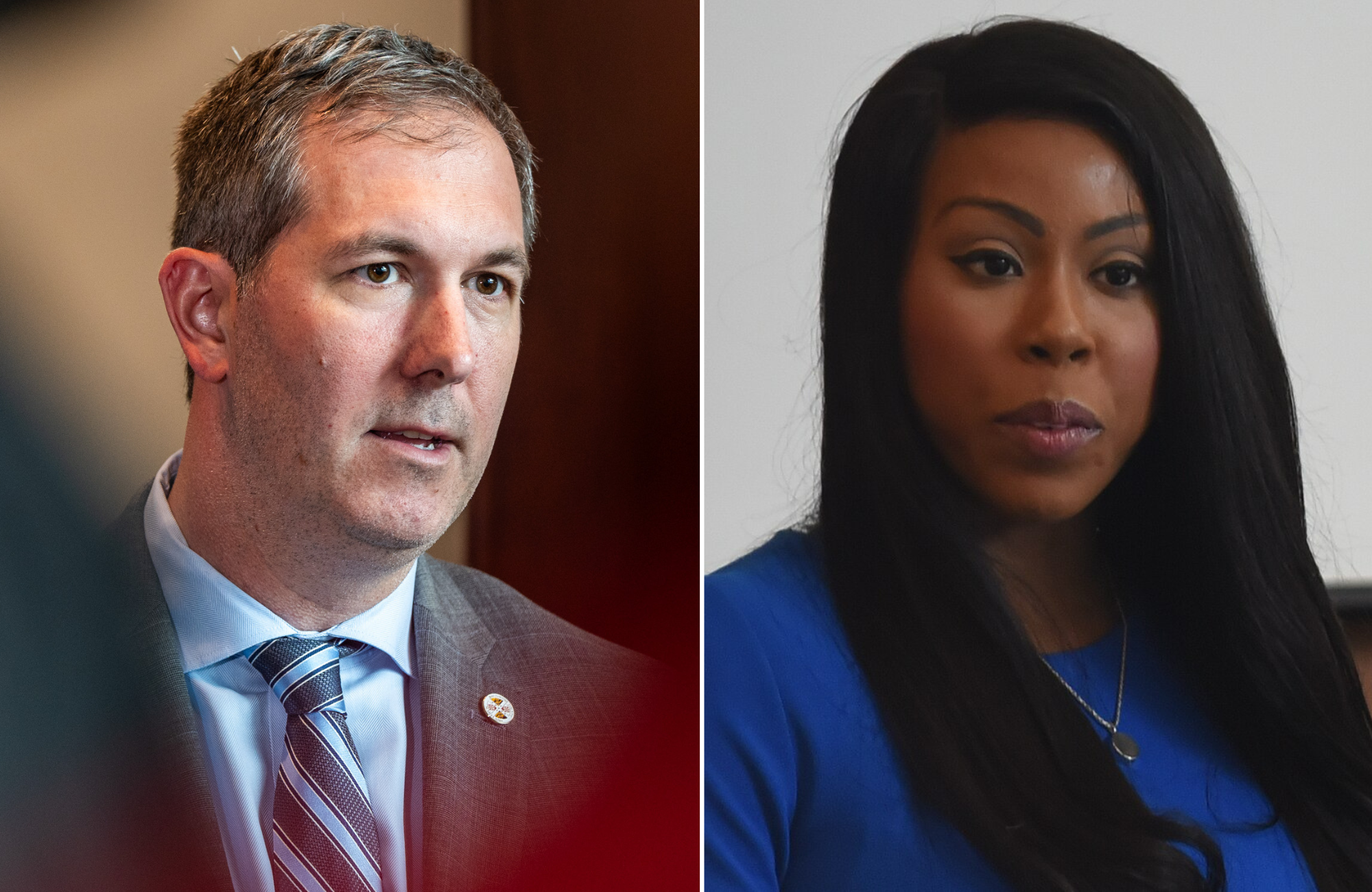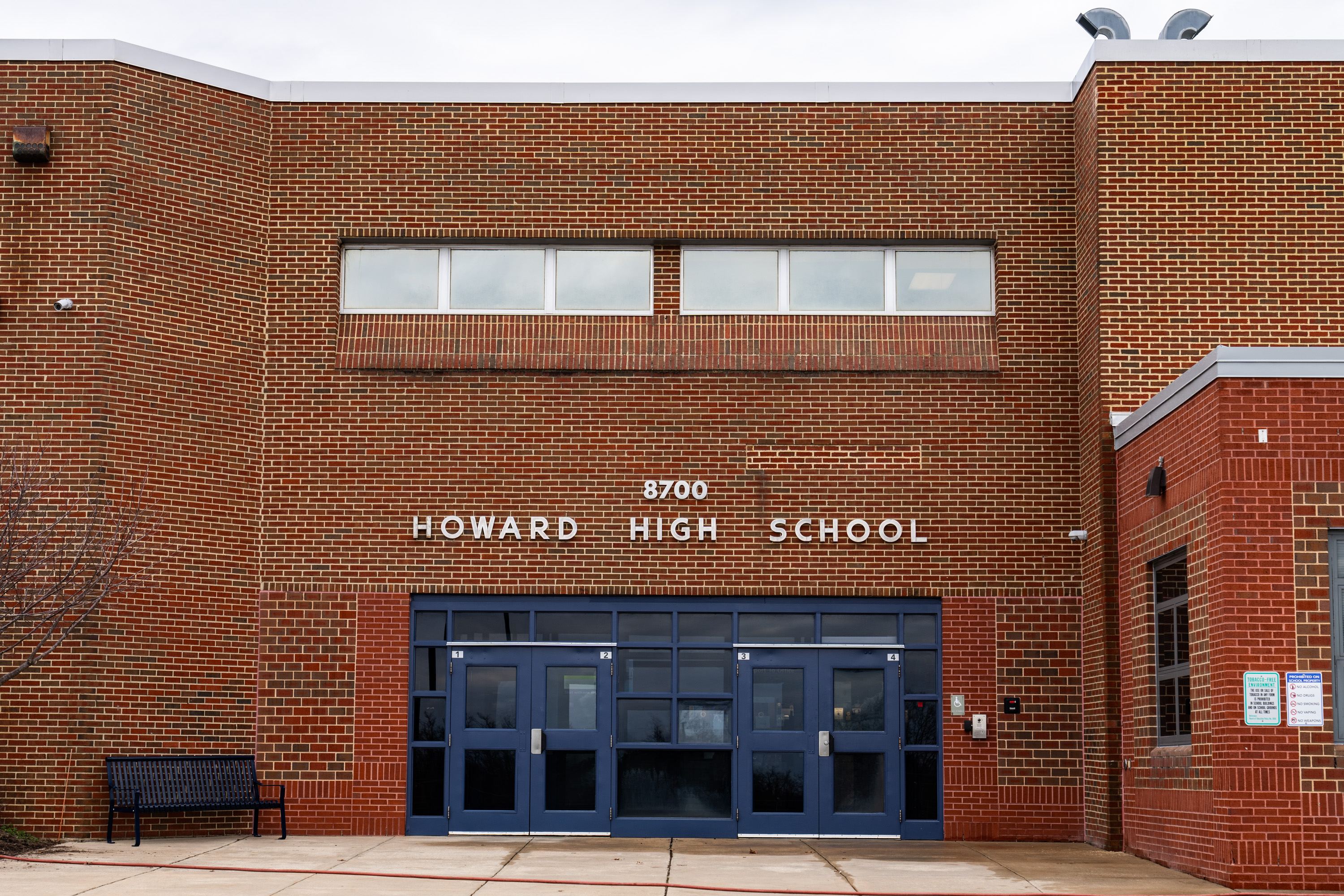What’s the job: Sets policy and chooses the school system superintendent. The board also approves the district budget.
The eight-member board includes seven members elected by district and a student member chosen by students. School board elections are nonpartisan. Primaries are held if there are more than two candidates seeking a seat, with the top two vote getters advancing to the general election.
District 1 — Brooklyn Park, Ferndale, Jessup, Linthicum
Name: Gloria D. Dent
Did not respond to biographical questions or candidate questionnaire.
Personal: Married, has three children, lives in Severn.
Education: Doctorate from Northcentral University with a concentration in psychological trauma and a Master of Business Administration, International Business Human Resource Management, from Trident University.
Experience: Serves on the board of directors for Anne Arundel Workforce Development Corporation.
District 2 — Glen Burnie, Millersville, Severn
Name: Robert Silkwood
Age: 75
Personal: Married to Linda Silkworth, three children and many grandchildren.
Education: Bachelor’s Degree, secondary education and French, Towson University; Master’s Equivalent Plus.
Experience: 49-Year Anne Arundel County teacher; Teachers Association of Anne Arundel County representative, chairperson of the TAAAC High School Concerns Committee; faculty council chairperson, North County High School; member of the Board of Education District 2 since 2020; vice president of the Board of Education for 2 years; president of the Board of Education for 1 year.
Endorsements: Teachers Association of Anne Arundel County.
Notable donors: None.
Questionnaire
A: School safety, the mental health of our students and staff, and hiring and retaining highly qualified teachers and staff. These are the top priorities such as increasing access to Pre-K. It will pay many dividends in the future. Our focus as a Board of Education must continue to be on improving student outcomes.
A: Guidelines for cell phones have been provided this school year and they are working well. Students do not need access to cell phones during their classes. They can be allowed access during lunch. We have already heard from students, parents and teachers that communication between stakeholders is improving. Our students are rising to the level of our expectation.
A: The Maryland Blueprint mandates that we have highly qualified teachers in our classes. This has been a focus for AACPS for some time now. Our compensation package must be competitive and we must provide our teachers with the best possible work environment so that they can do what they do best, teach and mentor our students. During my tenure on the Board of Education, we have worked hard to provide appropriate compensation for our teachers and staff with great results. We will continue to do so.
A: We have policies in place which allow parents to present their concerns about specific content. This has worked for us in the past. I know because I chaired a committee in 2011 to review a book when parents voiced their concerns. The committee included parents, students, teachers and staff. The concerns were heard and everyone had an opportunity to voice their concerns. Parents were provided alternative selections. The same process is available today.
A: Redistricting means that some students will go to different schools. We must make the best use of the seats we have in our schools. Some of our schools have been over 100% while others were as low as 79%. Redistricting is not easy but it is necessary. We have completed Phase One and we will be moving on to Phase Two in 2025. The top priority is to create a plan which allows ALL students to attend school and Belong, Grow, and Succeed.
A: Anne Arundel county is one of the richest counties in the state of Maryland. However, our greatest wealth is in the young students we have in all of our schools. They are our future. I must and will advocate for what they need to be able to Grow, Belong, and Succeed. That is my focus. We have strong and positive relationships with ALL stakeholders in Anne Arundel County. This allows us to communicate and collaborate and advocate for our students and our schools.
A: I am in my fourth year as a member of the AACPS Board of Education after 49 years as a teacher in this county and I am proud of the work we have done. We have restored steps for our teachers and staff. We have hired one of the best educational leaders in the country and under his leadership we are moving from a good system to a great school system. We have a lot more to do to meet the challenges and the mandates of the Maryland Blueprint. I am committed to continue my work for the “KIDS”. Voters know me and they know that my agenda is non-partisan. I taught for the KIDS for 49 years and I ran for the BOE for the KIDS and I have worked hard during my first term for the KIDS. We have more to do!
District 3 — Gibson Island, Pasadena
Name: Erica McFarland
Age: 45
Personal: Married for 25 years, four children, lives in Pasadena.
Education: Attended, but did not graduate Indiana University of Pennsylvania.
Experience: Citizen Advisory Committee and on the Strategic Planning Steering Committee for AACPS.
Endorsements: Teachers Association of Anne Arundel County.
Questionnaire
A: The top three budgetary priorities that I believe we should focus on are teacher and staff recruitment and retention, mental health resources, and student safety. We need to have enough teachers, mental health professionals, special education educators, nurses, food service workers, bus drivers, and all other positions that are critical in order to meet the needs of our students. Additionally, all of our students and staff should feel safe within our schools. School systems, including AACPS, should have a budget that prioritizes student outcomes, safety, and the well-being of our students and staff.
A: I think we need to have a look at our approach to discipline to ensure that it is producing the desired result — an end to the negative behavior through proper interventions. I believe that discipline should be restorative in nature. Measures that remove the student from the classroom may be necessary for the immediate safety of our students, however, we still need to consider that suspending a student further puts them behind academically, possibly leading to a cycle of poor behavior and poor academics. Negative behaviors stem from a root cause and care needs to be taken to ensure that student behavior is addressed with concern for the student.
A: I am very interested supporting a Grow Your Own Educator program. Programs like this attract prospective teachers in our own communities through partnerships between school districts, colleges, and community organizations. Besides providing wrap-around services and financial support, it encourages diversity in the workforce that reflects the diversity of the student population. We also need to prioritize making sure that our current staff has the tools they need to be successful. We should leverage all of our resources, including advocating in our county and state government, to ensure that we have affordable housing so that those who work in our community can also afford to live in our community.
A: I trust our educators and librarians to choose a wide range of age-appropriate books that reflect the diversity of our student population. Reading instills a love for learning, develops a creative imagination, challenges our mindset, supports us through tough times, and teaches us about the world around us. We are all unique in what speaks to us and we have the choice to read a book or leave it on the shelf, but we need to maintain diversity in book choices so that we all have access to the books that spark our interest.
A: Redistricting is a challenge. On one hand, we need to meet the growing population in our school district and ensure that we are utilizing our resources well and keeping class sizes manageable. On the other hand, there will always be someone who is disrupted and disappointed by a move to another school. I feel for the students who have to change schools due to redistricting but I am confident that our staff will work to make the transition as smooth as possible for those affected.
A: I value your tax dollars that help fund the education of our children. I believe it is the duty of the stewards of the money invested in our children to spend wisely and to provide a good return. While recognizing that there are many moving parts and important projects and initiatives to fund, I am budget-conscious and fiscally responsible. We all want our children to have access to the best education, which sets them up for greater success in life. This does come at a cost, however, it is money well spent as an investment in the future of our community.
A: I would be a valuable asset to the Board of Education because I feel I can make a difference in our schools and our community. I am thoughtful in listening to concerns, engaging in conversation, and in collaboratively coming up with effective solutions when issues arise. Through countless field trips, scout camp outs, career day, working in the classroom, being a cheerleading parent, helping out with the Chesapeake High School Robotics Team, and in my mentorship positions as an adult leader, I have consistently shown up for our children. I truly believe that they can make the world a better place. I want to support that. I want to be a part of that. Helping our children to rise to challenges, come up with creative solutions and watching them soar would make me so proud. I think we are headed to a better future, led by our children, guided by our teachers, and supported by our parents and community.
Name: Chuck Yocum
Age: 61
Personal: Married for 35 years, three children, one grandchild, lives in Pasadena.
Education: Bachelor’s degree, education, West Virginia University; master’s degree, special education, West Virginia University; certificate of educational administration, the Johns Hopkins University.
Experience: Served on boards including People’s Community Health Foundation; president, Civitan Club of Glen Burnie; board member; Buccaneers Youth Athletic Association, athletic director; Y of Central Maryland Community Leadership Board; Pasadena/Arnold, Caring Cupboard Food Pantry, co-founder/president.
Endorsements: No official endorsements.
Questionnaire
A: In order of importance, 1. Academic Excellence. Every dollar should be spent with that goal in mind. 2. Teacher retention. Number one can’t be achieved without exceptional teaching. 3. Technology: We are preparing students for an unknown work force in an ever changing technological landscape. We must prepare them to be flexible in its use and adaptation.
A: My slogan is Back to the DRAWING board. D is for discipline, which is out of control in our system. I see it and hear about it every day. Teachers cannot be effective if they spend a portion of their class dealing with disciplinary issues. The BoE must support the teachers, principals and Superintendent and uphold penalties placed upon the disruptive students. We must work with families and mental health professionals as well, to determine those students acting out for reasons of emotional trauma.
A: During my 36 years with the system, I once developed a public private partnership with a developer and the county government to provide low cost housing for young teachers. That program was denied by AACPS administrators at the time. Housing costs are some of the most named reasons for losing teachers. That program needs to be revived. We also need to find ways to fund salaries. Pie in the sky unfunded mandates from the state are meaningless if we don’t have the teachers. Rather than creating a billion dollars in taxes and fees to implement them, we get back to the basic fundamentals of education and use that money to pay the teachers.
A: I believe content that is age inappropriate should not be in our school libraries. By inappropriate I mean that of a descriptive sexual nature (including those with graphic illustrations involving sexual acts,) above the general comprehension of the students age. I do not support the removal of books because they generally make someone uncomfortable. Sometimes reading should be uncomfortable, but never of a nature of a sexually explicit nature.
A: Having ran the redistricting program for AACPS for 17 years, the number one priority should always be balancing enrollment to bring schools under state-rated capacity.
A: Every new home in this county pays an impact fee that is to go toward the school(s) in the assigned attendance area. Sometimes, those dollars are shifted and they shouldn’t. Though I like the current process of outside vendors rating our schools and ranking them in order of need, to take politics out of the equation, we have a unique issue in our county. We have amazing custodial staff and maintenance workers who keep our schools looking and working well. Occasionally, those efforts can sometimes hide the true exhaustion of a building. The cosmetic appearance masks the outdated usefulness of a school and at those times we must go off the list and change priorities as we know exist.
A: Coming to an end of a 36 year career with AACPS, I have been behind the the security doors and have participated in many facets of our system. I’ve been in the meetings, helped shape our budgets, developed our instructional program. I’ve seen the good, the bad and the ugly and understand better than any other candidate, what changes need to be made to bring AACPS back to Academic Excellence.
District 4 — Ft. Meade, Laurel, Odenton
Name: Sarah McDermott
Personal: Married for 14 years, two children, lives in Odenton.
Education: Associate degree, general studies, Anne Arundel Community College; bachelor’s degree, government and politics, University of Maryland, College Park.
Questionnaire
A: The top three priorities of the school system should be 1) the recruitment and retention of qualified and committed educators 2) increasing awareness and resources for college preparedness and career and occupational programs, and 3) funding community schools.
A: The goal of the policy is to reduce the amount of student distraction teachers are dealing with during instructional periods. Dr. Bedell has commented that “we only have our students in school for about 19 percent of each week, and we need to maximize every minute of instruction that we can.” I agree with him and believe not only will our students be focused more on what happens in the classroom, but that their mental health will be improved by significantly increasing the amount of human interaction between them and the other students. Allowing students to have access to their phones at lunch time is acceptable, but use in the classroom should be prohibited.
A: The best ways to recruit and retain educators are to 1) ensure that they are paid wages that are competitive with surrounding counties, 2) provide multi-year contracts that can provide security and the ability to plan financially, and 3) ensure a workplace culture where they feel supported in their decisions and have the resources they need to be successful.
A: The student-family-educator relationship is highly interconnected, as all of these people play an active role in preparing children to thrive in the adult world. The importance of communication between families and staff must continue to be emphasized in order to provide the collaborative support that students need to be successful. If a parent were to request changes to curriculum or library content, I would of course give them the courtesy of listening of discussing their request. However, we cannot set the dangerous precedent of honoring requests made with the intent of limiting diversity or representation in curriculum or library content.
A: The top priority is creating equity through redistricting. If a school is overcrowded, it means those students (and teachers) are being disadvantaged. With recognition that some of these changes may be tough for students and families, it’s necessary as we work to ensure all our children have the same access to quality educational programs in all locations.
A: The key to finding the balance is having clear, detailed standards that dictate which schools must have updated construction, that way there is no waffling on what needs to happen. All children deserve to go to schools that are safe and updated to present construction standards. Understanding that nobody wants a hike in property taxes, it’s important to recognize the benefit for all homeowners when schools in their district are updated.
A: I am running for this position because I believe in the value that public education can bring to an individual’s life. I am focusing on making daily experiences better for educators and staff, ensuring that our children have opportunities after high school, no matter if they choose to go to college or not, and I’m determined to ensure our schools with the most socioeconomic challenges have the resources they need to be successful. Also, I have a professional background that includes policy planning and implementation, budgeting, and management, which will allow me to bring a unique perspective to the Board.
Name: Stephanie Mutchler
Did not respond to biographical questions or candidate questionnaire.
District 5 — Arnold, Broadneck peninsula, Severna Park
Name: LaToya Nkongolo
Age: 45
Personal: Married for 22 years, has two children, lives in Severna Park.
Education: Master’s degree in social work, University of Maryland-Baltimore School of Social Work; master’s degree in organizational management and leadership, Springfield College; bachelor’s degree in social work, Delaware State University.
Experience: Served as the social and emotional chair for the Anne Arundel County Board of Education Citizen Advisory Committee, served as co-chair of the Behavioral Health Subcommittee on County Executive Steuart Pittman’s Healthy Transition Team, active member of the Baltimore Washington Medical Center Foundation Board of Director, served as president of the Maryland Addiction and Behavioral-Health Professionals Certification Board, served as the Vice President of Services From the Heart/Backpack Buddies Board of Directors.
Questionnaire
A: Academic Excellence: In less than a decade, AACPS, once top-ranked in the State of Maryland, has declined significantly, now mediocre at best despite rising taxes and increased funding for public school education. My priority is to restore academic excellence, equip students and teachers, and enhance parental involvement. My goal is to move our schools’ forward to greatness and ensure taxpayers get a return on their investment. Fiscal Oversight: My budgetary priorities revolve around ensuring adequate funding for essential educational resources, improving reading and math proficiency among elementary students and updating curriculum materials. Safe, Supportive Environment: To secure safe, supportive, and conducive learning spaces, I would prioritize tackling physical safety measures foremost. I’d also hold individuals accountable for disruptions hindering teaching and learning, fostering a culture of respect to create an environment where teachers can teach effectively and students can learn without disruptions.
A: Technology and digital resources can be valuable tools in education, but they should serve as a supplement to—not a replacement for—traditional teaching methods. My philosophy is that students learn best through direct instruction from experienced teachers, hands-on learning, and critical thinking, not through over-reliance on screens. Technology should enhance the learning experience by providing access to information and helping students develop skills for the future, but we must be careful to ensure it doesn’t undermine basic educational principles or distract from core subjects like reading, writing, and math.
A: Attracting and retaining high-caliber teachers and staff across the district requires a multifaceted approach. Professional development must be a priority as this will enable teachers to refine their skills and excel in their profession, striving to become top-tier professionals in the field. Additionally, soliciting feedback from staff and implementing their suggestions can enhance job satisfaction and retention.
A: If concerns about specific content arise, I would approach these issues thoughtfully and with an open mind, ensuring that we have a balanced and respectful discussion. I believe in engaging parents, teachers, and educational experts to review the content in question. I support parents’ rights to have a say in what their children are exposed to and believe that schools should collaborate with parents to make informed decisions that align with our community’s values and prioritize our students’ best interests.
A: When approaching school redistricting, my main priority will be to ensure that the process is fair, transparent, and centered on the best interests of our students. My district is part of the next phase so I will focus on prioritizing minimizing disruptions to students both academically and socially. This decision will also involve soliciting community input and engaging in long-term planning to account for future growth and changes in our county.
A: As a former Anne Arundel County employee who has effectively managed multiple budgets, I understand that we must balance the need for school construction and renovation with keeping property taxes low in a fiscally responsible way. We should prioritize efficient spending by focusing on critical infrastructure needs, ensuring that every dollar is spent wisely. We can re-evaluate existing budgets to identify areas of waste. Additionally, it’s important to phase projects over time, so we don’t place an undue burden on taxpayers all at once. The key is making sure we invest in our schools without resorting to constant tax increases that hurt hardworking families.
A: For nearly two decades, I have been deeply involved in Anne Arundel County, serving children and families from all backgrounds. In addition to my longstanding commitment to the county, I bring a range of skills and expertise that are currently lacking among our Board representatives. Every program I’ve developed throughout the county has been successful and continues to serve as a vital resource for our community. As an entrepreneur with strong leadership and budgetary skills, combined with my data-driven decision-making, mental health expertise, and focus on academic achievement, I believe I am the most qualified and capable person to guide our schools toward academic success.
Name: Dana Schallheim
Age: 48
Personal: Married for 16 years, has one daughter, lives in Severna Park.
Education: Bachelor’s degree, business administration, Western Washington University; master’s degree, business administration, University of Brighton.
Experience: Ran 2018 as a first-time candidate.
Endorsements: Teachers Association of Anne Arundel County (TAAAC), Comptroller Brooke Lierman, County Executive Steuart Pittman, Sen. Pam Beidle, Sen. Sarah Elfreth, Sen. Dawn Gile, Del. Heather Bagnall, Del. Ben Barnes, Del. Sandy Bartlett, Del. Mark Chang, Del. Shaneka Henson, Del. Dana Jones, Del. Mary Lehman, Del. Joseline Pena-Melnyk, Del. Andrew Pruski, Del. Gary Simmons, Board of Education member Joanna Tobin, Former Board of Education student member Josie Urrea, County Councilwoman Lisa Rodvien, LGBTQ Victory, Fund LPAC
Questionnaire
A: 1. Improving pay and benefits to teachers and staff in order to retain high-quality educators. Every child deserves an excellent teacher, and we will only keep excellent teachers in the classroom if we support them properly. I have worked to increase teacher & staff compensation throughout my term, one of the many reasons I’ve earned the endorsement of our teachers in this race. 2. Expanding mental health support in schools, hiring additional counselors and psychologists to ensure all kids are supported. I have worked to hire more mental health staff in schools every single year, but there is more to do. 3. Expanding access to full-day Pre-K. Investing in a strong start for our youngest kids will pay off down the road. This is one of our most important priorities in the coming years.
A: The AACPS Student Code of Conduct applies progressive discipline for infractions made with a nexis to school ranging from warnings to extended suspensions. The consequences are dependent on the behavior. Restorative justice practices, which focus on resolving conflict, repairing harm, and healing relationships and support a positive and safe school climate, prevent bullying, and reduce disciplinary incidents are employed throughout the system. While I believe AACPS employs a robust disciplinary system outlined above, students of color and special needs students have disproportionately higher discipline referral rates than their white, general education counterparts. This is unacceptable and one of the myriad reasons why my Board colleagues and I pursued the hiring of Dr. Bedell. Beyond closing the discipline gap, another aspect of the code of conduct that needs work is in middle school. Unlike high school, where behavioral and academic consequences exist that remove privileges such as participating in athletics, music, and drama extracurriculars, the same doesn’t exist in middle school. This is one item I hope to address during a second term.
A: My support for our educators is clear. I fought relentlessly for, and successfully restored, compensation previously frozen during the Great Recession. As of the start of the 23-24 school year, AACPS is now 4th in the state in new teacher compensation (when I joined the Board, we were 19th). Likewise, I successfully advocated for additional planning time for all elementary educators. I’ve always encouraged the school system’s HR department to think outside of the box when it comes to recruitment of new teachers - crucial in Maryland which is a net importer of teachers. AACPS recruited candidates at 70 job recruitment fairs during the 22-23 school year in 11 states, DC, Puerto Rico, and the HBCU national virtual job fair, partnering with nearly 30 colleges and universities. As a result, we’ve seen a 13% increase in our applicant pool this year, with the largest class of teachers of color our district has had in years. Finally, I approved several new high school education courses as part of an initiative to “grow our own” future educator workforce. I am proud to be endorsed by The Teachers Association of Anne Arundel County (TAAAC).
A: The lion’s share of the curriculum used in AACPS is actually dictated by MSDE. Beyond that, I wholeheartedly trust our Librarians and Media Specialists, experts in the field, whose job it is to review and approve books in accordance with AACPS policy and regulations to make decisions regarding the age and developmental appropriateness of books and other reading materials available to AACPS students. Without exception, I am entirely against another parent or group of parents’ ability to make decisions regarding what my publicly-educated child and her peers can and cannot read or what her teachers can and cannot teach. Censorship, white-washing curriculum, the omitting of historical facts, and other regressive policies must never find a home within AACPS. Make no mistake, extremists are trying to bring these policies to Anne Arundel County, and I will always stand against them, one of the reasons why I have earned the endorsement of more than two dozen local and state elected officials. The book bans happening in Florida and elsewhere will not happen here. Not on my watch.
A: Phase 1 of 2 of the first AACPS systemwide redistricting in decades concluded November 2023 with implementation fall 2024. The second phase will kick off spring 2025 with voting in November 2025 and implementation fall 2026. The rationale for redistricting is to either balance enrollment (either over or under-utilized schools) or to open a new school facility. The two most important points when considering any redistricting are the data and constituent input. Both of these were highly prevalent during phase 1 of redistricting and will be again with phase 2.
A: As Budget Committee Chair for three years, I worked to transform the budget amendment process, creating transparency and additional oversight of taxpayer money. School construction/renovation is part of the AACOS capital budget and includes funding from the state. The Board of Education of Anne Arundel County has zero say in taxes levied by the state. That would be under the sole purview state government. I will always; however, put forth budgets that ask our funders to properly and fully fund AACPS and meet the needs of our students, teachers, and staff. Furthermore, no school system in Maryland, including AACPS, is a funding authority. AACPS does not have the power to levy taxes or pass bond bills. In Anne Arundel County, The Board passes a budget that then goes first to the County Executive and then to County Council who are the final arbiters of the county’s budget. Providing world-class public education to nearly 85,000 students costs money, and costs will rise as the Blueprint for Maryland’s Future (state law) is implemented. It will be the job of the Maryland General Assembly to ensure that funding is adequate for AACPS to implement the Blueprint with fidelity.
A: Over the past 5.5 years, I have focused on improving four student outcomes: high-quality teachers, research-based math and curriculum, good leadership, support for mental health, and social-emotional development under the leadership of Dr. Bedell, a nationally-recognized superintendent, whom my colleagues and I unanimously hired. I championed new policies protecting LGTBQIA+ students and students with food allergies and improving our bullying, bias, and special education policies. I added dozens of school counselors, psychologists, and social workers to our schools and lobbied successfully for flex periods in all high schools as well as for JROTC magnet programs with transportation. In a second term, I will fight to ensure that the Blueprint for Maryland’s Future is implemented with fidelity and will represent the interests of District 5 residents during the second phase of the county-wide redistricting. If we elect my opponent, who has said publicly that she will ban books, that increasing pay is not important to retaining teachers, and who supports sending our tax dollars to private schools, our school district will go backwards. Let’s keep things moving in the right direction and elect me to a second term on The Board of Education of Anne Arundel County, representing District 5.
District 6 — Annapolis, Crownsville, Millersville
Name: Edilene Barros
Did not respond to biographical questions or candidate questionnaire.
Name: Joanna Bache Tobin
Age: 61
Personal: Married, one child.
Education: Bachelor’s degree, Wellesley College; master’s degree, liberal arts, St. John’s College; Ph.D., political theory, Georgetown University
Experience: District 6 representative on Board of Education of Anne Arundel County, 2020-present; chair, Anne Arundel Citizens’ Advisory Committee on Recycling, 2009-2012; chair, board of trustees/member, Chesapeake Montessori School, 2010-2015; vice president, PTSA, Annapolis High School 2017-2020; member, board of directors, Maryland Hall 2023-present; chair, accreditation site visit teams, American Academy for Liberal Education 2011-present; faculty member, St. John’s College, Annapolis, 2002-2006.
Endorsements: Teacher’s Association of Anne Arundel County, Caucus of African American Leaders, state Sen. Sarah Elfreth, state Sen. Pamela Beidle, Del. Dana Jones, Del. Shaneka Henson, Del. Heather Bagnall, Del. Andrew Pruski, County Councilwoman Allison Pickard, County Councilwoman Lisa Rodvien, County Councilwoman Julie Hummer, County Councilman Pete Smith, Anne Arundel County Executive Steuart Pittman, Moms Demand Action gun sense candidate.
Questionnaire
A: Top AACPS budget priorities should be: (1) offer compensation packages that are commensurate with the area’s cost of living to attract the most qualified individuals; (2) fully fund the Blueprint for Maryland’s Future to ensure best student outcomes; and (3) provide adequate education facilities. Competitive compensation for all levels, ranging from principals and educators to food service workers and custodians, would ensure AACPS can compete with neighboring counties to attract adequate numbers of the best education professionals and support staff. This strategy ensures smaller class sizes and provides ample mental health professionals, along with other essential support resources for students. Teachers could then focus on teaching rather than addressing a myriad of issues that detract from teaching. The Blueprint includes raising educator compensation, funding high quality, early childhood education (beginning with pre-K for 3-year-olds), and ensuring funding provides resources most needed for each child to ultimately graduate as truly career or college ready. Essential school facilities are paramount for the holistic development and well-being of children. Every AACPS student deserves to learn and grow in a safe and welcoming environment that is clean, functional, and developmentally appropriate.
A: I support recent cell phone guidelines as introduced by AACPS Superintendent Dr. Mark Bedell. Research demonstrates that cell phones are a tremendous distraction for students (and teachers) while in class; they also can hamper students’ ability to focus and learn. Moreover, constant access to a cell phone may have adverse impacts on a student’s mental health. Guidelines stipulate that students must put away their cell phones while in class and the halls, though high school students may have their phones out during lunch. However, access to other devices that support research and learning should be permitted at the teachers’ discretion.
A: Recruiting and retaining the best educators begins with offering compensation packages that allow them to comfortably reside in Anne Arundel County, a high-cost area. The AACPS system has made significant progress in raising starting salaries for educators since I was elected to the Board in 2020. We have provided cost-of-living increases, and incentives for salary boosts when educators complete study for specific certifications. But there is more to be done to ensure vacancies are filled, teachers are adequately compensated, and that veteran educators, in particular, receive proportionate compensation raises. By creating a career ladder, veteran educators could remain in the classroom as teachers and still have deserved salary increases instead of leaving the classroom for better-paying administrative positions. We also need to nurture the development of new teachers with consistent and authentic mentoring and coaching that encourages openness without consequences to create a strong and collaborative culture/structure. We should redouble our efforts to hire a diverse teaching force, which may include recruitment at Historically Black Colleges and Universities and through non-traditional sources, such as targeting people who are considering career changes.
A: I have devoted my career as an educator to ensuring that students know and understand the facts underlying every issue they study and have unfettered access to the information they need to learn about those facts. I am also committed to ensuring that censorship never takes hold in this country’s public education system or communities. AACPS already has in place policy and process to ensure that all books and other materials made available to students, both in classrooms and libraries, are grounded in the following criteria: developmentally appropriate and meet the academic, social, and emotional needs and interests of students. I trust our highly trained educators and media specialists, who participate in the initial selection of books and materials and serve on review committees, to make well-informed decisions based on the criteria. A caregiver who believes that a book their child has access to is inappropriate may request a review of the book in question.
A: Redistricting involves many considerations. I will approach redistricting based on data that support the potential for student outcomes for the diverse groups of students, along with input from my constituency. District 6, like all AACPS districts, must balance the use of education facilities to avoid overcrowding at some schools and low enrollment at others. Balancing facilities is essential to using tax dollars wisely. Importantly, eliminating overcrowding can remove previous zoning barriers to the county’s development of additional housing, particularly affordable housing.
A: I am committed to careful, prudent stewardship of tax dollars; I too am a taxpayer. But as a Board member, my north star is, and will be, a focus on improving student outcomes. To that end, I will make decisions on competing priorities, including those to approve funding for school construction/renovation, based on my assessment of what is needed to ensure that student outcomes are fully supported. Fully using existing educational facilities is essential. This was my goal when advocating for the first county-wide school redistricting in recent memory. The first redistricting stage, which included the northern part of the county, was implemented at the beginning of the 2024-2025 school year. The second stage, including the central and southern parts of the county, will begin in early 2025 with expected implementation at the beginning of the 2026-2027 school year. It is a fact that Anne Arundel County is projected to be the fastest growing school system in the state over the next several years. Even with full, balanced use of all our facilities (with an average age of 30 years), it may be necessary to continue to build new facilities and replace aging ones.
A: I deserve a second term because I have a proven record of delivering on the promises I made to my constituents when I first ran for the BOE in 2020. I promised to work for increasing compensation for AACPS educators and all employees; move school start times to new, healthier hours; hire additional counselors, psychologists, and social workers; and oversight of the Superintendent. As Chair of the BOE Policy Committee, I oversaw the development and approval of the first, most comprehensive LGBTQIA+ Student Protection Policy in the state. As President of the Board from December 2021 to December 2023, I oversaw the hiring of Dr. Mark Bedell, nationally recognized as one of the most effective superintendents in the country, and brought leadership to the Board, ensuring more efficient meetings, focused on student outcomes. Looking forward, I will ensure leadership continuity so Dr. Bedell can continue to take AACPS from a good school system to one of the best in the country, strengthen instruction to move every student forward, advocate for better mental health supports, build a more inclusive educational model for all our students, and ensure the Blueprint for Maryland’s Future is implemented fully and with fidelity.
District 7 — Crofton, Davidsonville, Edgewater, Deale
Name: Dawn Pulliam
Age: 52
Personal: Single, no children; family lives in Anne Arundel County with children who attend the county’s public schools.
Education: Bachelor’s degree, government and politics with a minor in Spanish, University of Maryland, College Park; master’s degree, business, University of Maryland University College.
Experience: Co-founder, Tate Innovation Launch Pad, 2024-present; senior program manager, Defense Civilian Training Corps program, 2023-2024; director, Lockheed Martin Sustainment Institute and lead, Corporate Sustainment Council Talent and Workforce Development Initiative, 2019-2023; director, business development, Stronghold Technologies, 2016-2023; director, School of Public Policy’s Center for Public Policy and Private Enterprise at the University of Maryland College Park, 1997-2019; founder and director, Maryland Crime Research Innovation Center at the University of Maryland, College Park, 2018-2019; affiliate, College of Mechanical Engineering, A. James Clark School of Engineering, University of Maryland, 2019-Present, member, Southern High School Integrated Community Stakeholder Team, 2022-present; mentor, Southern Future Farmers of America, 2024-present
Endorsements: County Councilwoman Shannon Leadbetter, County Councilman Nathan Volke, Del. Seth Howard, Del. Stuart Schmidt, Del. Brian Chisholm, former state Sen. Edward Reilly, former state Sen. Janet Greenip.
Questionnaire
A: Academic Excellence: AACPS must restore academic excellence, addressing the fact that two-thirds of students lack proficiency in reading and math. I propose returning to a traditional education model that prioritizes reading, writing, arithmetic, problem-solving, and critical thinking. Teachers need the right tools and learning environment, and parents/caregivers must be key stakeholders in the process. Distraction-Free Learning Environment: For teachers to perform their roles effectively, it is essential to cultivate a safe and distraction-free learning environment. Such an atmosphere is crucial not only for teaching but also for fostering student engagement and academic success. Key components of this environment include the elimination of bullying, minimizing disciplinary issues, buckling down on the vaping/drug policies and continued restriction on recreational cell phone usage. Parental Rights - Parents are essential stakeholders and authorities in the well-being and education of their children. I will advocate for their right to have a voice in educational decisions, ensuring they are informed about what their children are learning and any changes related to their chosen identity. Furthermore, it is crucial that parents have the option to opt-out of specific curricula they deem inappropriate for their children, empowering them to make choices that align with their family values.
A: I believe the current policy is working whereas the students are able to use their cell phone before school, during lunch and after school for high school students.
A: Attracting and retaining top educators is crucial for our future. I will work closely with incoming and current educators to address their needs. I support key initiatives such as ensuring a safe, distraction-free environment, onboarding behavior interventionists, offering housing incentives and advance pay, and ensuring fair, competitive career ladder plans. Additionally, I support reducing the number of conditionally certified educators.
A: I believe that books should be age appropriate and not show sexually explicit material.
A: My foremost priority is to listen to the voices of my constituents. During the first phase of redistricting, the AACPS School Board utilized various tools to gather community input, including a dedicated website, an interactive map, and opportunities for comments on multiple options. We also provided platforms for community members to speak directly to the Board regarding the proposed maps from the superintendent. I believe it is essential to repeat these steps, ensuring that we capture the real stories of how potential changes will impact families. My commitment is always to prioritize the needs of the families in District 7!
A: Capital and operating budgets are separate. While AACPS facilities and maintenance crews do an excellent job, we’ve seen a doubling in the rate of growth over the past four years compared to the previous four. I would work with the Board to prioritize renovation and construction for schools experiencing the highest levels of overcrowding. I would also consider the age of buildings and their ability to meet current infrastructure needs. It’s essential to be prudent in our spending while ensuring that our schools are equipped with the modern advancements necessary for delivering a top-quality education.
A: I was raised in the Maryland public school system from K-12 and went on to earn both my undergraduate and graduate degrees from the University of Maryland. I want every child to receive the quality education I experienced, enabling them to become productive members of our community. Whether a child chooses to pursue a trade, attend college, become a stay-at-home parent, or start their own business, they deserve access to a high-quality education. With over 27 years in education across business, government, and academia, I specialize in policy, program management, and developing and managing multi-million dollar budgets. I’ve collaborated with stakeholders (elected officials, business, and academia) to address complex issues and created STEM and Non-STEM programs addressing critical skill needs. I aim to refocus funding on academic success, ensure safe, distraction-free environments, and strengthen ties with parents and teachers.
Name: Jeremy York
Age: 38
Personal: Married, two children.
Education: Bachelor’s degree, international affairs, George Washington University; master’s, business administration, George Washington University.
Experience: Senior strategist, Coursera, 2022-present; management consultant, IBM, 2017-2022; manager of Piominko House, The Chickasaw Nation Dept. of Commerce, 2013-2017; Chief of Staff to the Chickasaw Nation ambassador, 2011-2013; Arabic linguist for the U.S. Marine Corps, 2005-2010.
Endorsement: Teachers Association of Anne Arundel County, Parental Alliance for Student Safety, Caucus of African American Leaders, Moms Demand Action, state Sen. Sarah Elfreth, state Sen. Dawn Gile, state Sen. Pamela Beidle, Del. Dana Jones, Del. Heather Bagnall, Del. Andrew Pruski, Anne Arundel County Executive Steuart Pittman, AAC Board of Education member Dr. Joanna Tobin

